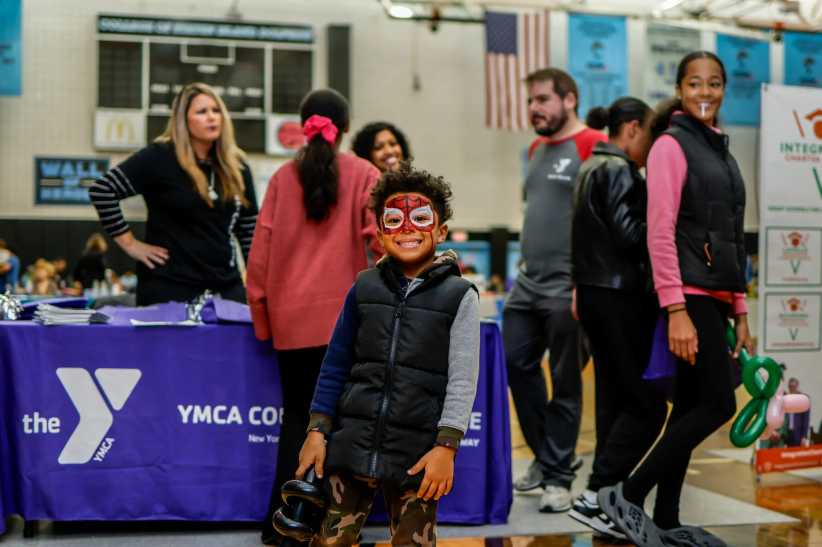
Why Our Overactive Society Views Shyness as a Sickness
January 2nd is World Introvert Day
If you’re raising a quiet or shy child, or were one yourself, have you ever stopped to consider that being shy or introverted might not be a bad thing? While there are countless books on how to help your shy child “come out of their shell” and well-meaning friends and relatives often scrutinize kids for signs of social anxiety, shyness actually has its advantages.
Psychology Backs This Up
Research shows that shy and introverted kids don’t just grow up to be successful—they often become leaders and artists. Psychology backs this up, challenging the idea that introverts are somehow less than extroverts. Susan Cain, a well-known author and advocate for introverts, works to break the stigma by highlighting the unique strengths introverts bring to a world that’s dominated by extroverts.
Psst… Check Out How Music Saved My Son’s Life
In her article “Shyness: An Evolutionary Tactic,” Cain points out how ads for social anxiety meds often paint a negative picture of shy people, showing them as struggling or in need of fixing. She raises an important question: do all these kids really need medication, or are they simply engaging with the world in their own quiet way? Maybe they’re not anxious, but instead are taking everything in through peaceful observation and introspection, rather than jumping into immediate interaction. Why does everyone have to be a social butterfly to be deemed normal or even acceptable?
Shy People Do Amazing Things
Many brilliant and successful people were thought to be shy from Albert Einstein and Charles Darwin to Rosa Parks and Meryl Streep.
Cain explains that many shy people grow up to be fantastic leaders because they excel at listening, understanding others, and thinking carefully before they act. They’re not just quiet—they’re sensitive to the needs of those around them and deeply thoughtful in their approach. It’s unfortunate that society often undervalues this personality trait, turning shyness into something to be “fixed” rather than embraced. How many times have you heard someone say, “She’s a little shy” or “He’s just shy”? It’s almost like we’re apologizing for their quietness, as if it’s something wrong with them instead of something that can be a real strength.
It’s probably the worst thing an adult can do to a child because it points out their trait by making an excuse for the child’s personality, which sends the message that how he or she is in the world is wrong.
And that’s just not true. Think about if a child was being rambunctious. It wouldn’t be acceptable to point out their behavior by saying, “Oh, he’s just loud and obnoxious.”
Social Pressure Behind the Stigma of Shyness
In today’s world, there’s more pressure than ever to be extroverted. The media, social networks, and even the medical field constantly push the idea that we need to be more socially active. This has been especially true in recent years, as drug companies have capitalized on the notion of social anxiety.
As Cain explains, the concept of social anxiety didn’t really take off until pharmaceutical companies began making medications for it. She writes:
“Social anxiety disorder did not officially exist until it appeared in that year’s Diagnostic and Statistical Manual (DSM-III), the psychiatrist’s bible of mental disorders, under the name ‘social phobia.’ It wasn’t widely known until the 1990s, when pharmaceutical companies received FDA approval to treat social anxiety with SSRIs and spent tens of millions on advertising. The next version of the DSM (the DSM-IV) noted that stage fright and shyness in social situations are common and not necessarily a sign of illness.”
So, is the stigma around shyness really growing because anxious parents are hearing from doctors and drug companies that their kids won’t succeed unless they’re more outgoing? That idea couldn’t be further from the truth.
Even more troubling is the push to change someone’s natural personality through medication. Cain points to a recent study showing that today’s SSRIs not only help with social anxiety but may also promote extroverted behavior. She warns:
“The day may come — and might already be here — when people are as comfortable changing their psyches as the color of their hair. If we continue to confuse shyness with sickness, we could end up in a world of all rovers and no sitters, all yang and no yin.”
If we keep treating introversion as a disorder to be fixed, we risk losing the valuable balance that introverts bring to our society.
How Shyness Can Spark Creativity
I was a shy kid, and to some extent, I still am. I’ve always enjoyed—and even craved—solitary time. Growing up, I often found peace in the quiet moments, even though my days were filled with the chaos of raising kids, working in publishing, and living in New York City. But no matter what, I always treasured my alone time, and I realize now that this quiet nature is a big reason why I became a writer.
I’m at my best when I’m writing, letting my mind wander freely through creative ideas. It makes me wonder: what if my mom had seen my shyness as a flaw and pushed me into constant social activities, just to “fix” my personality? Or worse, what if she’d put me on medication to change who I was? I wouldn’t be the person or the writer I am today.
I fully believe my artistic sensibilities would have suffered if I had not simply been allowed to live as I was born to be. Pushing kids to be more outgoing might hold back sensitive, future artists and creative thinkers.
Cain highlights that even Steve Wozniak, the co-founder of Apple, thrives on solitude. In his autobiography iWoz, he writes: “Most inventors and engineers I’ve met are like me. They’re shy and live in their heads. They’re almost like artists. In fact, the best of them are artists. And artists work best alone.”
Shyness can actually be a gift. The best thing a shy child (or any child) can have is a parent who doesn’t see their quiet nature as a problem but celebrates it for what it is: a unique and valuable way of being in the world.
Psst… Check Out Shocking Survey Reveals Healthcare Professionals Say Vaping Is a Teen Epidemic














